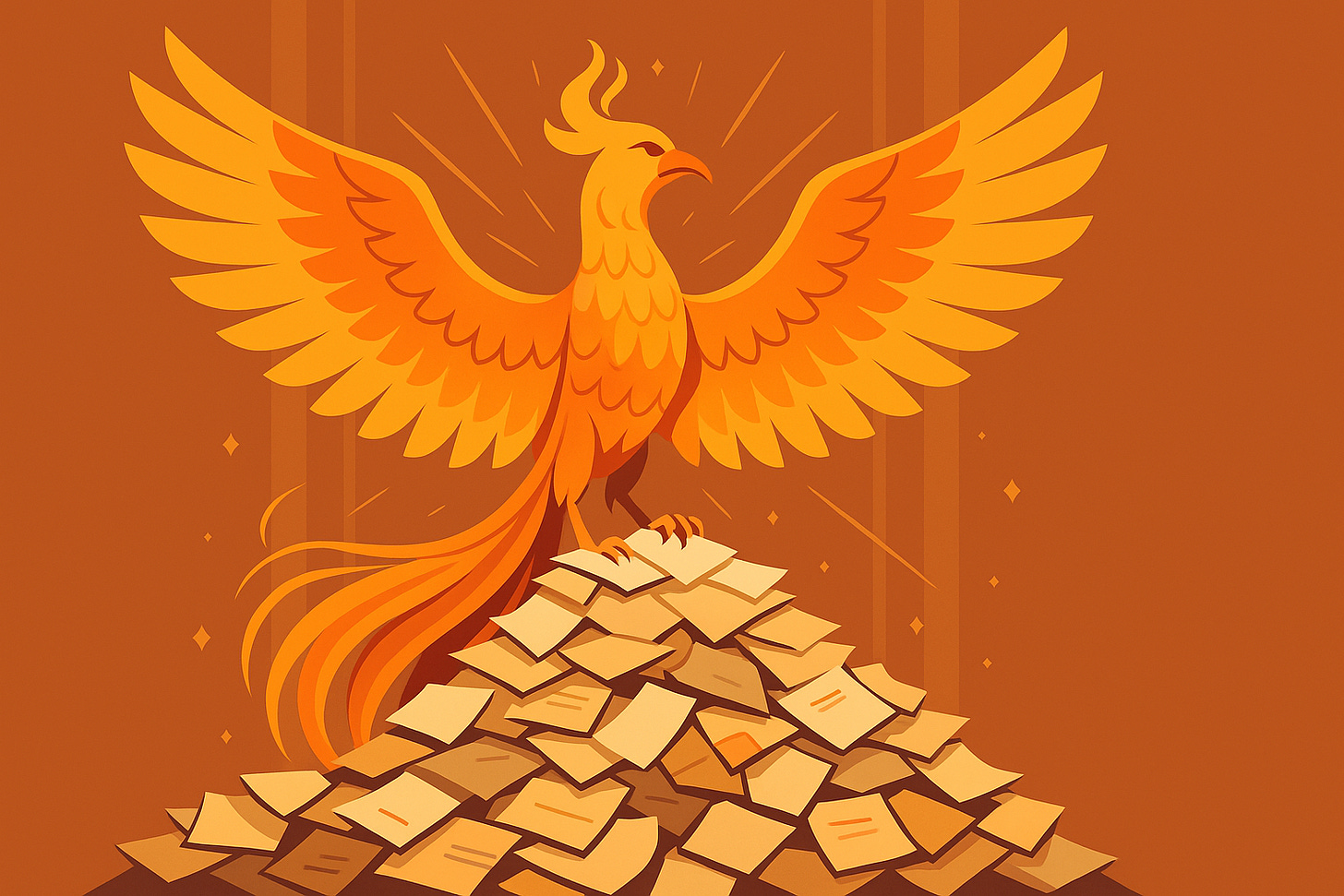How I turned crushing rejection into my biggest career catalyst
Most professors will hide this little gem
My publication breakthroughs didn’t happen despite rejections.
They happened because of how I learned to process them.
My first major paper got rejected from three top venues. Each email felt like a personal indictment. I wanted to quit, convinced my work was fatally flawed and I wasn’t good enough.
So I tried something different:
Mourn for 24 hours, then take action. I allowed myself 24 hours to feel like crap, vent, mope, eat ice cream. Then, no matter what, I had to open the reviewer comments and create an actionable edits spreadsheet and put each point they made into categories (major revision/minor fix/disagree & rebut).
Treat reviewer 2 as a free consultant. Even if R2 sucks (we all know) and the comments are harsh, I forced myself to find the kernel of truth in each comment. What misunderstanding did I create that led to this critique? This reframed reviewers as (sometimes brutally honest) unpaid consultants helping me improve.
Don’t despair but resubmit strategically. Instead of just firing it off to the next publication venue, I genuinely revised based on the patterns in the feedback. If two reviewers missed the same point, the problem was my writing, not their reading. Then, I picked a better journal whose scope truly matched the (now improved) paper.
What caught me off guard?
The revisions prompted by rejection often made the paper significantly better than I originally conceived. After shed tears and everything.
My failed attempts were actually crucial steps in refining my ideas.
You don’t need to avoid rejection to publish well.
You just need a system to extract nuggets from the critics and move forward strategically.
What’s the worst rejection you’ve faced, and what one lesson could you still pull from it?
I bet it’s not that your ideas are worthless!
(Like this shorter free post? Let me know and I’ll post more of those.)



